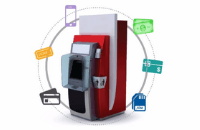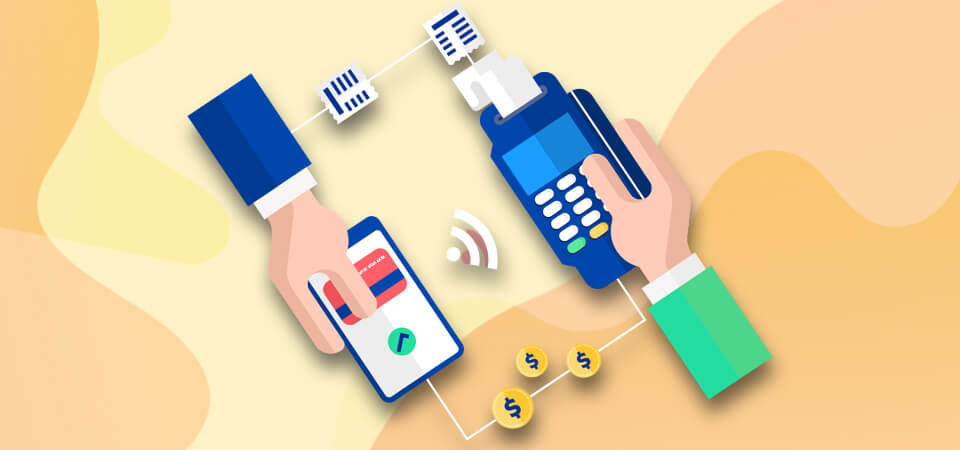In an interview with Efma, Shahzad Shahid, CEO of TPS, discusses the changes and challenges of retail banking. He outlines some of the ways in which banks can encourage their customers to move to cashless payment channels.
What do you see as the fate of banks in the coming years?
Banks across the globe are conservative and this region is no exception. The slow pace of banks in rolling out new services and adopting new channels, trends and technologies often stems from their decades-old strict regulatory regime and the risk-based governance model. And why not? Banks are responsible for the money of others and they cannot take chances on that! Yet we see banks which are forward-looking and take calculated chances, while there are those – and most of the banks fall in this category – which are more watchful and follow the established models.
I don’t see banks becoming redundant by nonbanking players in the foreseeable future. But banks’ role in the payment ecosystem will surely shrink if they don’t pick up pace, because customers are only loyal to the price and the quality of services they get. Banks are challenged today by the convenience and customer-centricity offered by other entities like Facebook and Google.
But change has started happening in the banking industry too. Right from the government down to banking regulators and the banks themselves – it is acknowledged that an enabling environment has to be created and banks have to change gears to become customer-oriented, to meet the demands of the modern, digital-age customers.
Do you see TPS benefiting from, or being challenged by this evolution?
TPS is well placed in this fast-evolving payments world because we bring both the maturity required by a financial institution and the speed, flexibility and innovation demanded by the current times. In the 20 years of our existence, we have helped transform the banking industry in Pakistan from a broken infrastructure back in mid-90s to now a fully integrated and online payments ecosystem. We work on the infrastructure – our transaction processing and payments platform – which can unify the systems and enable innovative services.
With the combination of innovative minds, technology and our banking experience, TPS enabled nationwide real-time funds transfer, known as IBFT, allowing an account holder to push money from their mobile phone or any other channel to any bank account of any bank across the country – and it’s instant. Pakistan became one of the first few countries to launch such a service in 2006, with the 1LINK national switch. This IBFT service disrupted cheques and cash, back in those days!
How has the Central Bank of UAE’s payments gateway become an enabler of a cashless society?
Cash rules in this whole region. The United Arab Emirates (UAE) is progressive; 98% of its population are smartphone users, but 75% of all payments there are cash. We have to pick the common cash payments and find its convenient, low cost digital alternative.
The domestic payment gateway we have set up for the Central Bank of UAE recently has the potential to reduce billions of dollars of cash transactions every year. Let’s pick remittance as a case here, because Gulf Cooperation Council countries see $98 billion remitted out annually, and the UAE alone has $19 billion sent out annually by millions of expats working in the country. No wonder we see long queues at exchange houses. Why would an expat in Dubai not prefer to remit money to his or her family in their home country simply by pulling the funds from his bank account and through the money transfer company of his choice, saving both money and time? Remittance besides, many other payments, including those to the government, are going to simplify the lives of its residents, thanks to this UAE payments gateway.
It is initiatives and services like this that will help encourage customers to move away from cash transactions. We need to understand why people currently prefer to use cash and then there needs to be a willingness from influencers and policy makers to help instigate change. In this instance, the exchange companies are ready to give you far better rates compared to the banks. But if banks enable digital transactions, then they can split the revenue with the exchange houses, while retaining the money. It’s a win-win situation.
Tell us about some of your work with biometrics?
Migration to digital is driven by customer convenience and a sense of security. Biometric authentication is set to see massive adoption across the countries in the region, similar to other parts of the world, for the convenience and security it offers over the prevalent passwords and PIN codes. We have done some projects where a customer can withdraw cash from an ATM through biometric authentication, without needing the card for the transaction. One such project done for Bank AL Habib in Pakistan is noteworthy. At Bank AL Habib we have used the standard ATM messages to transmit the biometric signature to the ATM host. This is a much secure implementation than the common methods used today. The service is currently enabled on Diebold machines but other ATM makes will soon be added.
Do you see ATMs as relevant when mobile is so prevalent?
As we see digital payments pick up, the use of cash will decline quickly, but it is not going away. So ATMs are here to stay in the foreseeable future. Studies suggest that the global ATM market will grow at a CAGR of 8% by 2020. The key role of ATMs in the branch transformation of banks is also supporting this growth.
ATMs are getting smarter and there are increasing numbers of implementations across the globe where customers just use their mobile phone app to initiate cash withdrawal from the ATMs. This replaces the need to carry plastic all the time. So mobile-ATM integration is now picking up.
ATMs are now becoming smarter too and offer personalized services instead of being dumb terminals. With the Smart ATM feature in our IRIS Switch, which works on customer usage trends, we give a better user experience to customers. Data analytics allows us to move from ‘What you want me to do for you?’, to predict and rather ask ‘Would you like to perform the usual withdrawal of $20 from your current account, with an e-mail receipt?’. Credit Libanais, a Lebanese bank, noticed a good improvement in customer satisfaction when it activated IRIS Smart ATM features on ATMs.
You talked about ATMs’ role in branch transformation, can you give any examples?
The most common transactions that retail customers make in branches are cash withdrawals and deposits. Banks can offer both of these on ATMs. We have also done projects in the region, including one at Commercial Bank of Kuwait. The bank’s customers are assisted by a member of staff who, instead of sitting at other side of the counter, is with the customer and services them via a tablet. By simply authenticating the customer using their ID and password or biometrics on a tablet app, a token is generated which is entered into the ATM to withdraw cash. This removes the use of cheques when withdrawing cash.
How is the mobile disrupting cash, cards and other common payment methods, and how is TPS benefiting from this?
Mobile phones have caused disruption across various industry verticals and it is clearly taking banking by storm. From financial inclusion to the use of mobile as a banking channel, and then payments, mobile phones are at the centre of so much happening today in banking and payments. Mobile phones serve all customer segments from retail to corporate, and give quite personalised services.
TPS has a full range of mobile solutions including a mobile money platform with wallet/agent management, mobile app and companion cards. Besides retail banking services, we have completed a successful project for B2B payments using mobile phones, via the USSD mobile messaging protocol.
The spectrum of services that one can enable with mobile phones is just immense. The use of mobile wallets for online and proximity payments is going to be a real driver for cash transactions to go digital in the region.
How you see the development of omnichannel banking?
Omni-channel requires a consistent experience for users across channels. However, it is a long journey for most banks to achieve it. Opti-channel banking is something that banks need to focus on for now, integrating channels for a better customer experience.
As an open digital payments platform provider, TPS has a big role to play in driving change across the industry. TPS technologies are the enablers, bringing the reliability and speed in financial transactions initiated by different channels.
TPS’s early versions of the payments switch have support for multi-channel banking. We continue to improve the payments platform with micro-services and open APIs.
How has technology helped the unbanked in the region?
There are some countries in the region with large unbanked and underserved population, while there are countries with a much higher banking penetration. In Pakistan, the EasyPaisa mobile money service is a big success story. It has brought millions into the banking net and digitised billions of rupees of payments.
Another example is of a much-developed country. The UAE government’s Wage Protection System directive has addressed issues of delayed salary disbursements to blue collar workers. Millions of workers across UAE now get their salaries on time, on payroll prepaid cards.
Customers of both EasyPaisa and WPS in UAE have adopted mobile phones as their payments instrument.
How do you expect banks to work with fintechs?
I think the platform economy is going to be really important in the future. At the moment, I don’t see many non-banking entities doing much in the financial industry in this region. It’s creating a big vacuum, particularly as banks cannot possibly expect to do everything themselves, especially when you consider the way that they are structured, the way they are designed and the way they are governed. It is key for them to collaborate with non-banking players to innovate and bring new products and services to market. Collaboration is key. We need to look to build up this ecosystem of industry and nonindustry companies that are willing to work together. Regulators play a pivotal role in digital transformation in any country. I see many countries moving in the right direction.
The potential of digital is huge. And developments such as mobile wallets will help to bring financial services to the masses. Mobile wallets are a great way of quickly and easily bringing cost-effective financial services to the previously unserved. It’s an effective way of tackling financial inclusion.
Then the next step is to open up data. This way banks can more easily connect their services with third parties to create a brand new financial ecosystem. I want to see banks opening themselves up for real collaboration. We need to break the existing silos down for the best, most exciting opportunities to emerge.










Leave A Comment